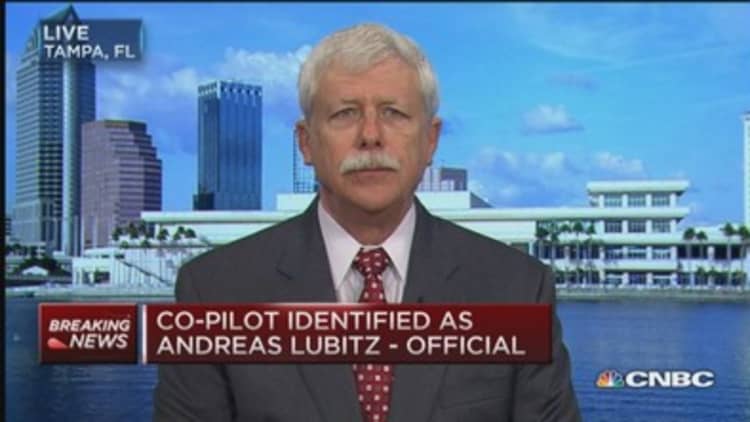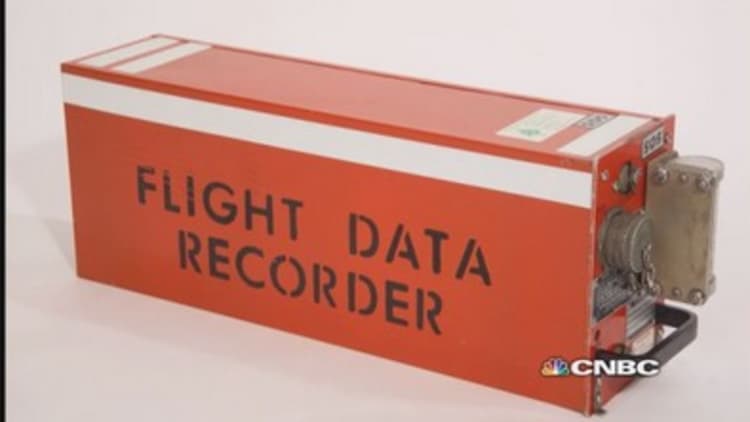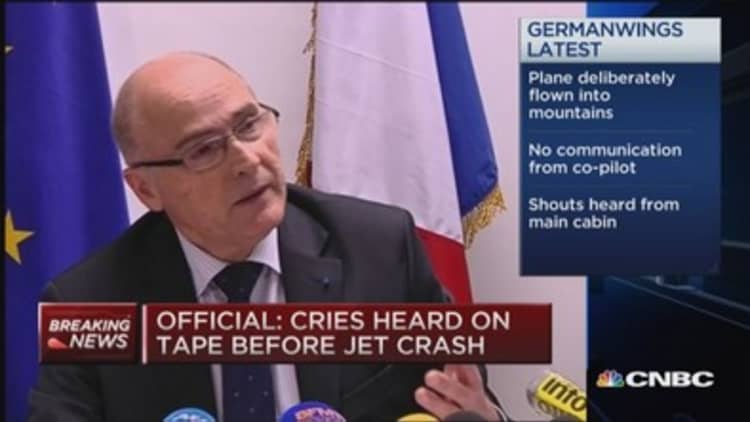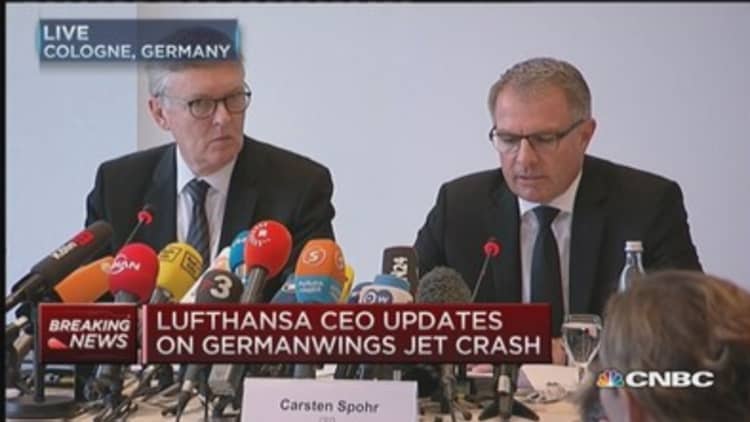



The cockpit protocol in place on Germanwings Flight 9525 will come under scrutiny, an aviation expert said on Thursday after a prosecutor revealed that evidence suggests one of the pilots on board intentionally crashed the plane in the French Alps on Tuesday, killing 144 passengers and four other crew members.
In the post 9/11-world, airlines in the United States require a flight attendant to enter the flight deck when one pilot leaves the cockpit, Capt. John Cox, CEO of Safety Operating Systems. This ensures there are always two crew members on the flight deck.
Read More Germanwings Co-Pilot Deliberately Crashed Airbus Jet, French Prosecutor Says
The protocol is in place throughout the United States, but is not mandated in Germany.
"This is one of those layered approaches to ensure that the proper people get in and out of the flight deck, and no improper people get in or out," he explained. "I'm sure without question that those security protocols are going to be reviewed and the exact protocol that was in place at Germanwings is going to be scrutinized very carefully."
Lufthansa, the parent of budget carrier Germanwings, confirmed on Wednesday that it is not unusual for a pilot to remain in the cockpit alone during certain phases of the flight while his or her co-pilot is outside the flight deck, The Wall Street Journal reported.
The chief prosecutor in Marseille, France, said on Thursday that a review of cockpit recordings led investigators to believe that pilot Andreas Lubitz locked his co-pilot out of the flight deck prior to the fatal crash. Lubitz joined Lufthansa a year and a half ago and had logged 630 hours of flight time.
Read More
Background checks and psychological evaluations are common at the outset of flight school and the time of hiring, Cox said. Additional evaluation may be required if flagged by co-workers, but that is not common, he added.
"There is some variance around the world as to the depth and frequency of background checks, so it's not something you can say that it's done to a single standard worldwide," he said.
After the incident, John Goglia, former National Transportation and Safety Bureau investigator, said airlines should require pilots to meet with someone trained to identify emotional problems when they take flight tests, which are administered about two to four times per year.
Cox told CNBC's "Squawk on the Street" that "I think we're going to have to pay more attention to flight crews and their emotional state."
Cox said the European system of flight training is very rigid, comparing it to military systems. As such, the low flight time for the pilot would not be indicative of a problem.
Read More Airbus video offers details on reinforced cockpits
He said training standards in the aviation industry remain high and the academics and competency checks are very rigorous.
"I don't look for those to change because that's the standard that we have set as an industry worldwide, and that's to a large degree how we've managed to make aviation as safe as it is," he said.
The challenge for the industry moving forward, he said, is getting the right people into the candidate pool.


